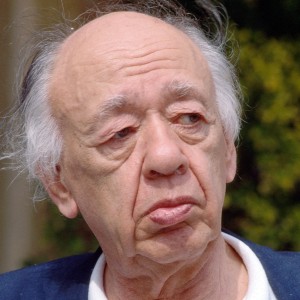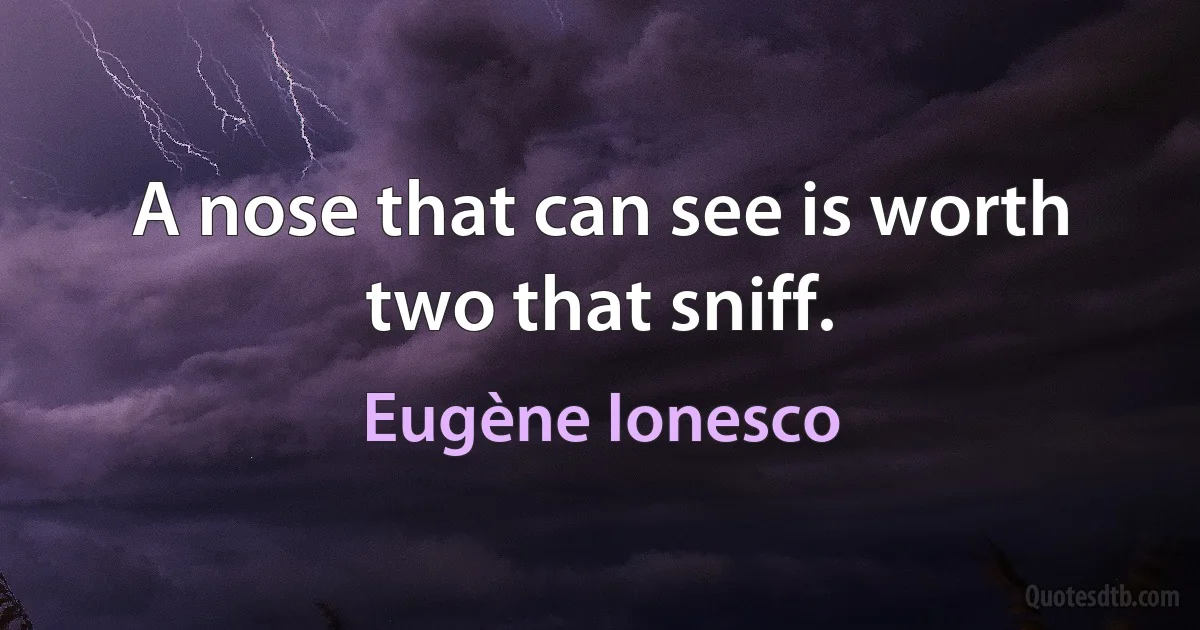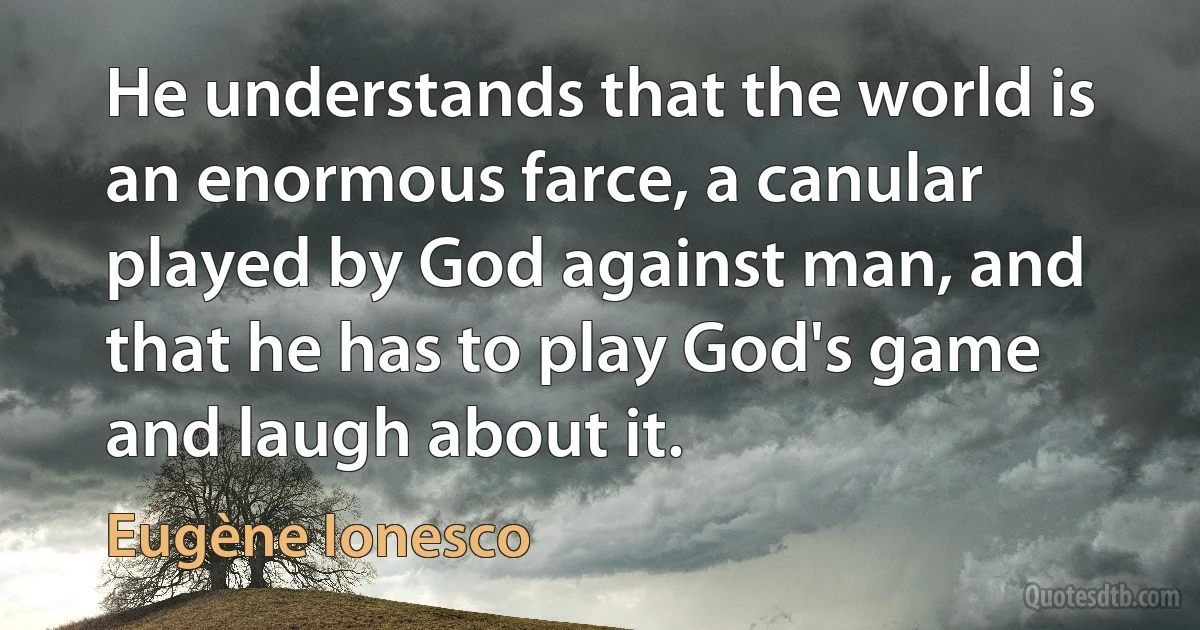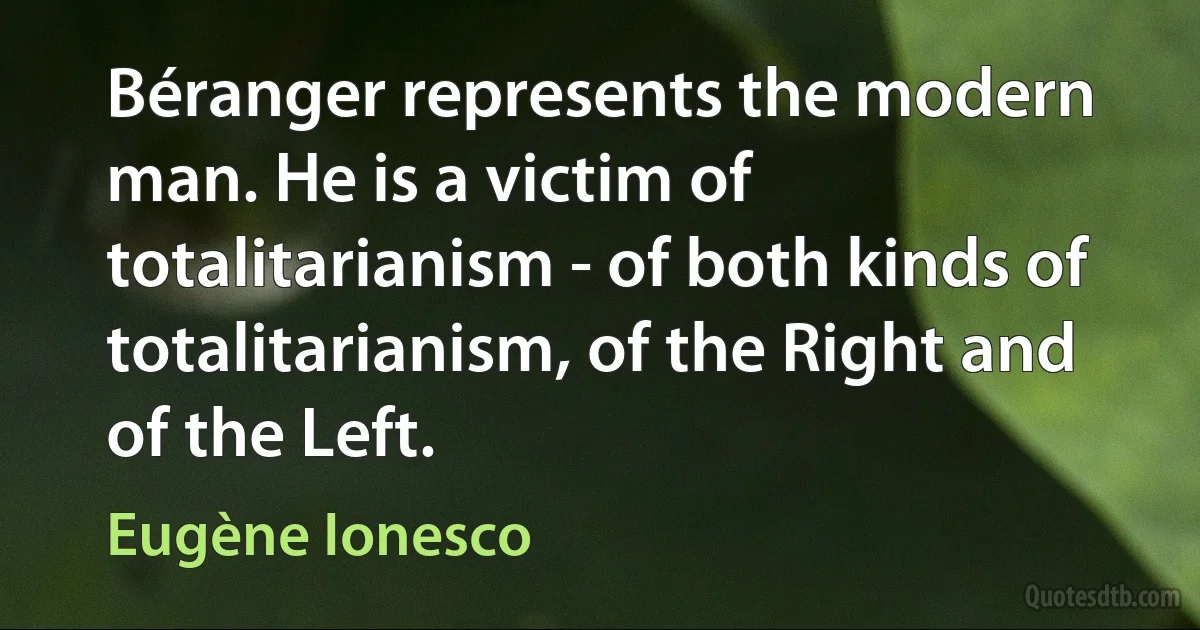Eugène Ionesco quotes - page 3
Eugène Ionesco was a Romanian-French playwright, widely regarded as one of the founders of the Theatre of the Absurd. His works explore the futility of language and the absurdity of human existence. He became a major influence in 20th-century drama with iconic plays like "The Bald Soprano" and "Rhinoceros." Here are 80 of his quotes:
I have always regretted having gotten involved with literature up to my neck. I would have preferred to have been a monk; but, as I said, I was torn between wanting fame and wishing to renounce the world. The basic problem is that if God exists, what is the point of literature? And if He doesn't exist, what is the point of literature? Either way, my writing, the only thing I have ever succeeded in doing, is invalidated.

Eugène Ionesco
The purpose of the Collège was the demolition of culture, even of surrealism, which they considered too organized. But make no mistake, these people were graduates of the Ecole Normale Supérieure and highly cultured. Their method was based on puns and practical jokes-le canular. There is a great tradition of puns in Anglo-Saxon literature - Shakespeare, Alice in Wonderland - but not in French. So they adopted it. They believed that the science of sciences is the pataphysique and its dogma, le canular.

Eugène Ionesco
Eugène Ionesco

Photo:
Gorupdebesanez,
CC BY-SA 3.0
Occupation: French Dramatist
Born: November 26, 1909
Died: March 28, 1994
Quotes count: 80
Wikipedia: Eugène Ionesco














